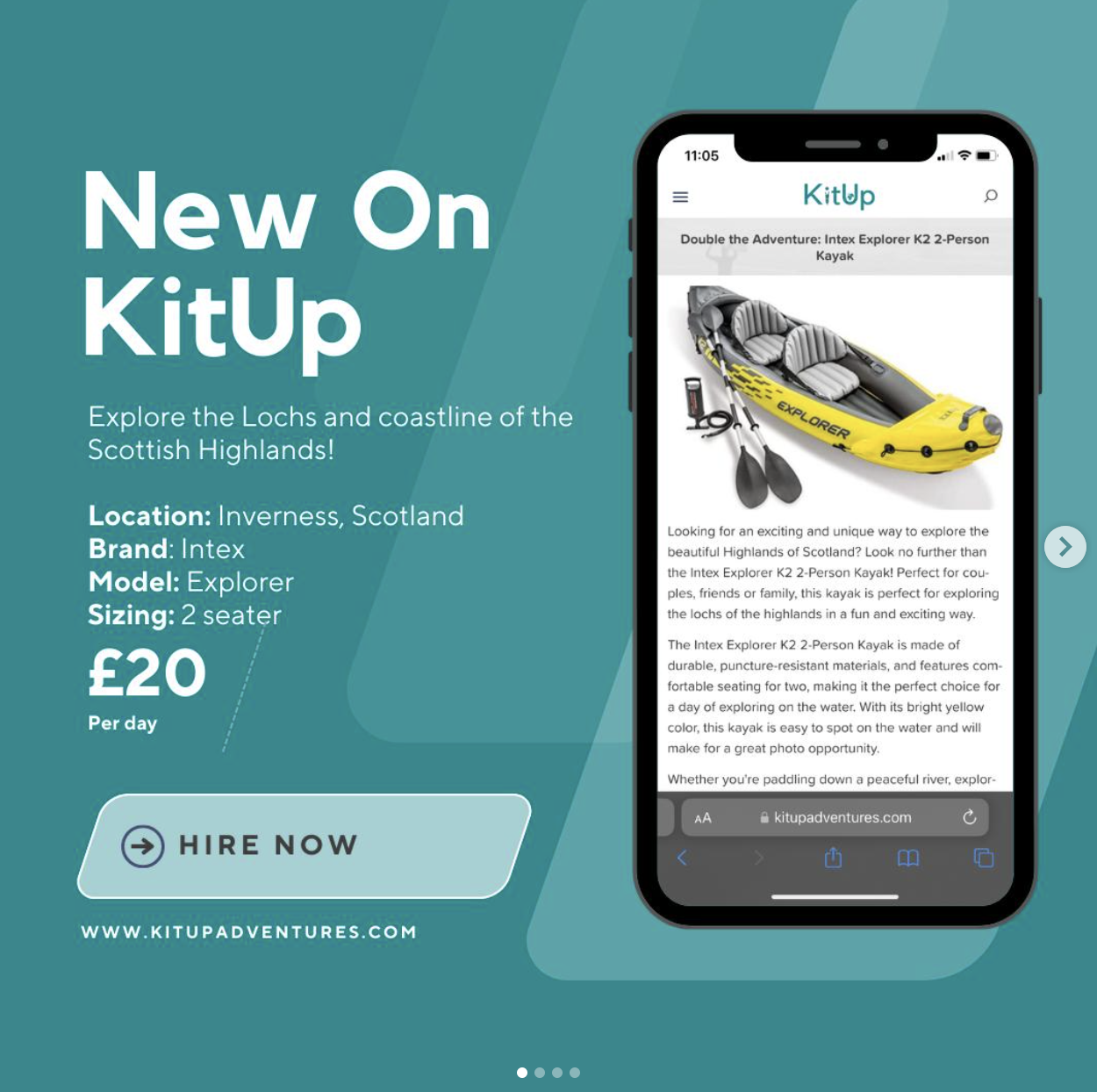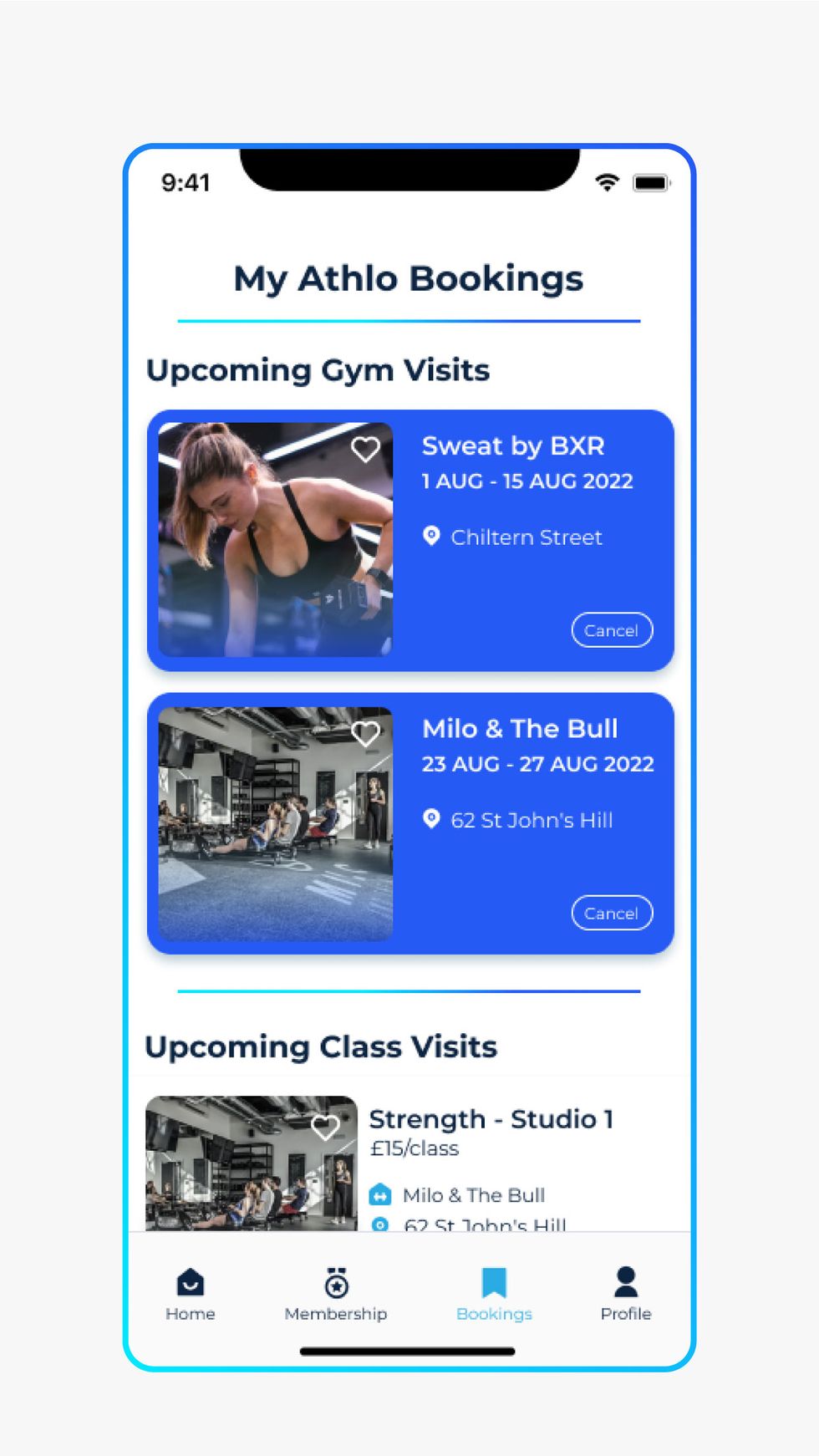A Rental Revolution
Megan Hotson
04/27/23

Our next-gen digital natives are all about renting.
In our lifetimes we have all likely rented a product or service; from renting a suit last minute for a wedding, to a car for a trip abroad – renting provides us with more flexible solutions to cater to our everyday needs.
Amid a cost-of-living crisis, consumers are increasingly looking to rental options as a cost-effective, convenient way to help them access goods or services to enhance their busy lifestyles.
Moreover, the continued growth of hybrid working post pandemic has acted to encourage people to investigate renting workspaces, houses, or short-stay accommodation abroad, to suit a more nomadic working style.
What is clear is that people do not want to compromise their hobbies, or daily lifestyle in the context of a financial crisis, and rental options are allowing people to continue living busy lives whilst feeling the squeeze of the cost-of-living crisis.
From renting outdoor equipment, to gym memberships– is there anything we won’t be able to rent in 2023?
Renting for the Outdoor enthusiast
Getting outdoors is something a lot of people love to do, with a recent study uncovering that four in ten adults said that they had increased their time spent outside (42% between April 2020 and March 2021 and 45% between April 2021 and March 2022).
However, as the pressure of a financial crisis squeezes household budgets, a survey published last year found that a staggering 90% of under 34s reported that last year they had to stop taking part in hobbies due to rising prices.

Enter, ‘Kit up’ - a new brand dubbing themselves ‘The Airbnb for outdoor equipment’. This outdoor centric rental service encourages users to list their outdoor equipment through their app to allow others to rent it. In return the user can earn a passive income, contribute to reduced waste, and become part of a community with like-minded people.
Kit Up is leaning into the desire from people to keep up their hobbies such as outdoor pursuits whilst keeping afloat in a cost-of-living crisis by offering a more flexible financial option.
The app is also supporting people that pursue an adventure in a more cost-effective way. Kit Up conducted and in house survey revealing that adventure is at the forefront of our minds with over 100 million Europeans booking adventure specific trips in 2021 alone.
Outdoor equipment rentals will only rise as we head into the summer months with warmer weather and longer days. Brands can make the most of an appetite for the pursuit of hobbies as normal in tougher times like this, by supporting their consumer with more flexible options such as rental services.
Gym Memberships on demand
Yes, you read that right. ‘Athlo app’ is a new brand which allows people to rent out their gym memberships when they are not using them.
Athlo wants to help people ‘Sweat and earn’ by approaching gym memberships in a new way. Instead of being limited to choosing long-term gym memberships, the app allows people to access gym facilities on demand. By listing your membership, people have the choice to rent your membership whilst you are not using it. 
This is a great alternative for the consumer who may not be able to commit to a long-term membership due to price, or other practical reasons.
Athlo is recognising a demand for greater flexibility when it comes to people’s daily routines and has re-imagined the traditional model of gym memberships to offer a more flexible solution.
Key takeaways:
- Reflecting the changing face of household disposable income in the context of a cost-of-living crisis, brands are venturing into the world of renting to offer more flexible options for customers. Given the continuation of this crisis, brands should consider offering their customers multiple ownership models to establish a competitive offering in a turbulent time.
- The growth of rental options aligns with a new generation’s need to be nomadic, and work in a more hybrid way. Consumers are increasingly preferring ownership with a commitment-light attitude. Brands should consider how they can lean into this preference, and allow their customers to make shorter, rather than long-term commitments to memberships, or schemes for example.


